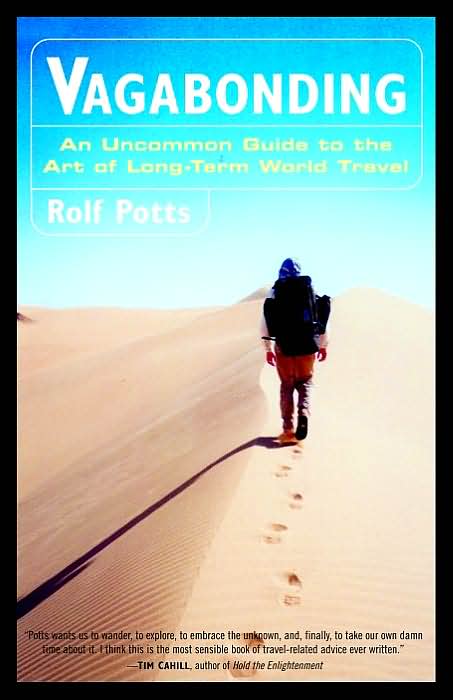Vagabonding

These are the underlined passages–perhaps the ones best relating to Escapology–in my copy of Vagabonding by Rolf Potts:
You don’t have to be rich to escape in the first instance:
the idea of a stack of money and a tropical getaway […] is an escapist cliche and you don’t need to rob a bank to prove it. Just take a modest, nonheisted sum–five grand say–to a quiet inexpensive beach in Guatamala, Greece, Goa and see what happens.
Indeed, the freedom to go Vagabonding has never been determined by income level: its found through simplicity — the conscious decision of how to use what income you have.
There’s nothing wrong with escaping and then coming back. You can always reintegrate if necessary:
don’t worry that your extended travels might leave you with a “gap” on your résumé. Rather, you should enthusiastically and apologetically include your vagabonding experience on your résumé when you return. List the job skills travel has taught you: independence, flexibility, negotiation, planning, boldness, self-sufficiency, improvisation.
A caution about your Escapological motivations:
It’s important […] that you never go vagabonding out of a vague sense of fashion or obligation. Vagabonding is not a social movement or a moral high ground […] It’s a personal act that demands only the realignment of the self.
And a single word:
adventure
★ Help fund the forthcoming Escapology book. Order a copy today.




About Robert Wringham
Robert Wringham is the editor of New Escapologist. He also writes books and articles. Read more at wringham.co.uk